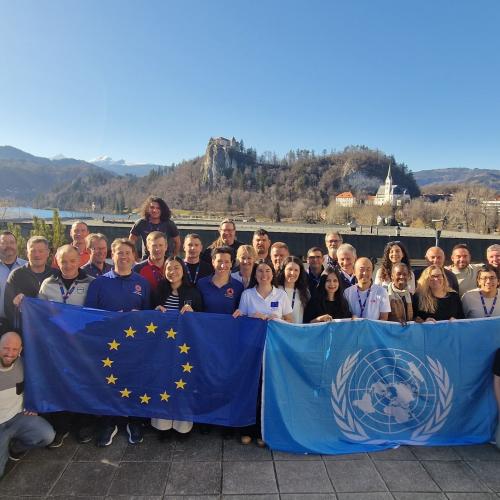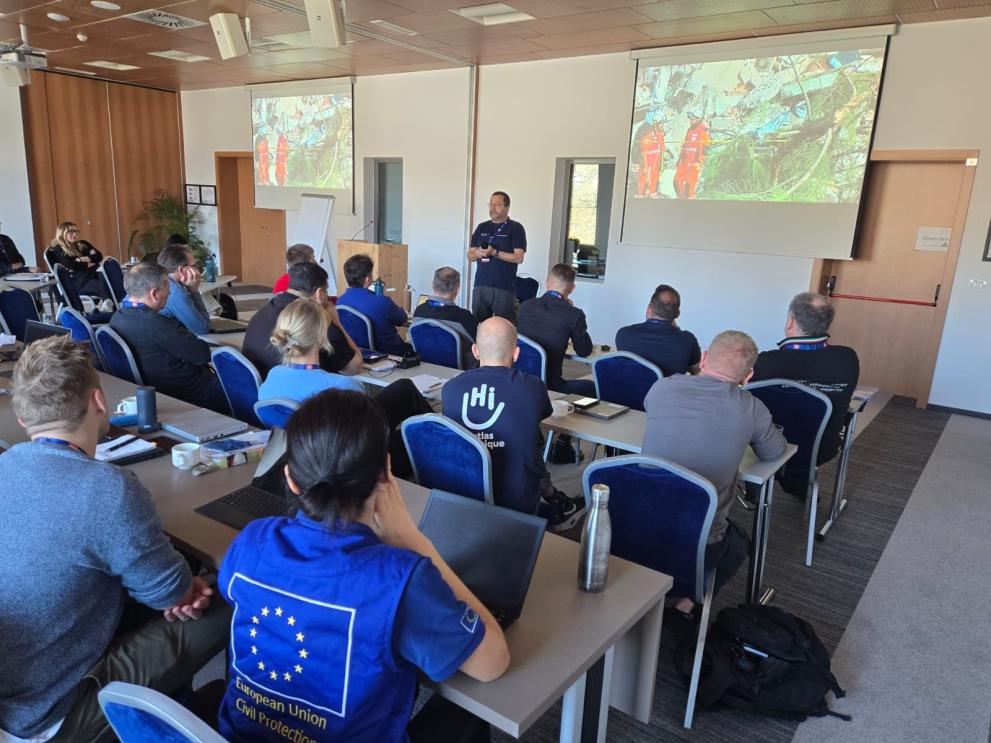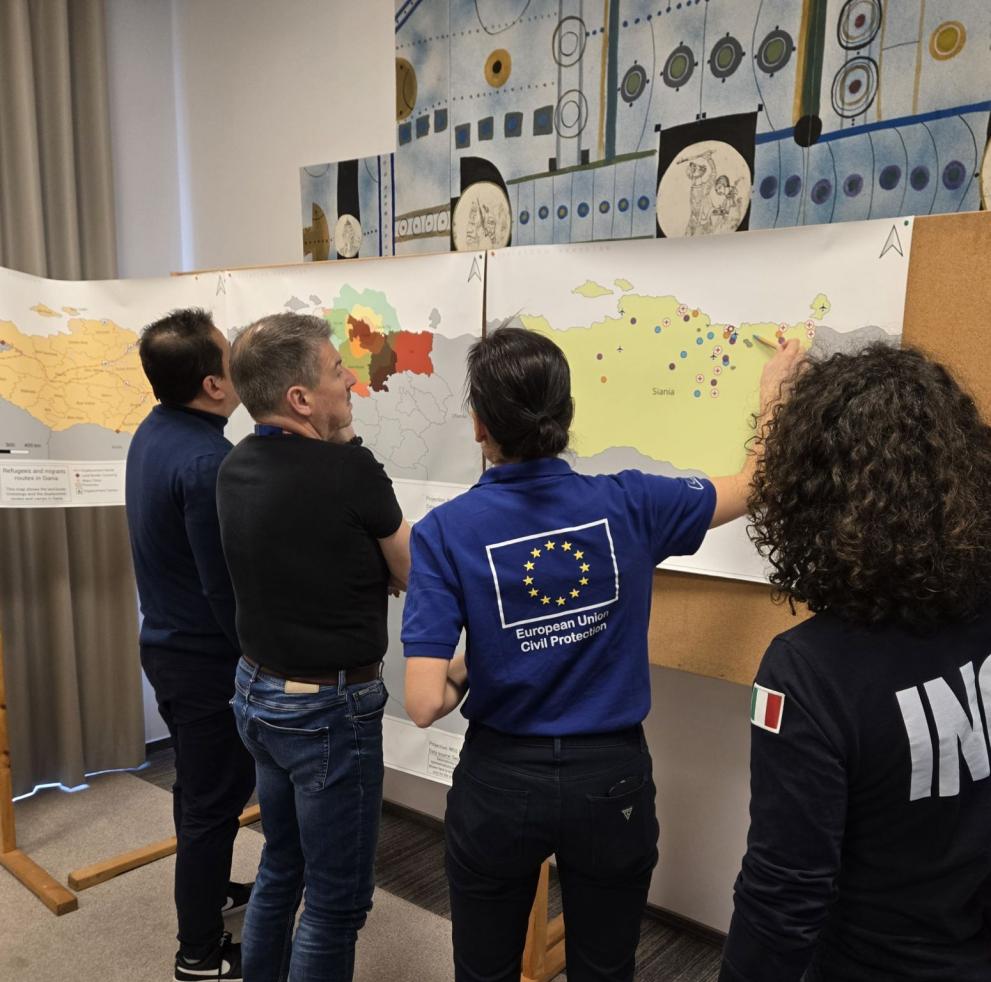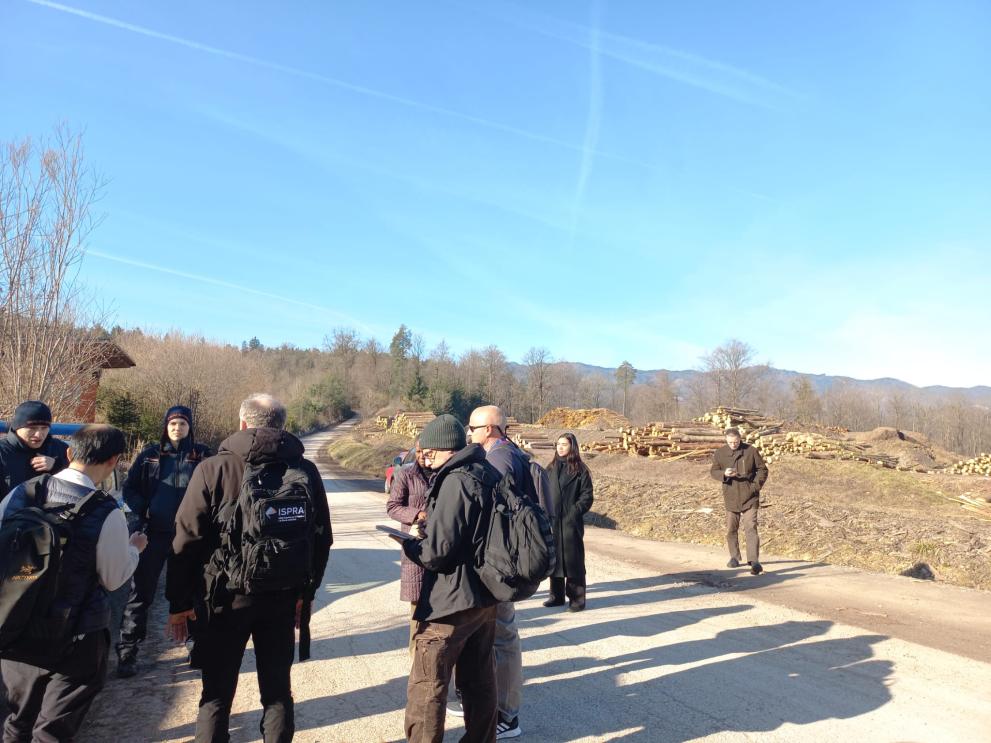
EET course: boosting environmental response in emergencies
From 2 to 7 March 2025, a training course for experts with an environmental background took place in Bled, Slovenia, as part of the joint European Commission-United Nations initiative.

Disasters and complex emergencies often result in adverse environmental impacts. A key element of emergency response is the rapid identification and mitigation of environmental risks – and thus the importance of training experts to develop an environmental lens. This is the motto of the Environment and Emergencies Training (EET): to provide experts with the skills and tools to rapidly assess environmental risks in emergency situations and minimise negative impacts on human health, livelihoods, and the environment.
The idyllic town of Bled hosted the Environment and Emergencies Training Course (EET) from 2 to 7 March 2025, in its seventh edition under the joint EC-UN initiative. 24 participants from Civil Protection and Humanitarian Aid brought their experiences together in the EET, a course jointly organised by DG ECHO with the United Nations Environment Programme (UNEP) and the United Nations Office for the Coordination of Humanitarian Affairs (OCHA) Joint Environment Unit (JEU) and hosted by the Administration of the Republic of Slovenia for Civil Protection and Disaster Relief (ACPDR).
The main objective of the EET is to provide participants with the knowledge, skills, and understanding of potential environmental damage of natural and man-made disasters and of how to apply relevant tools and approaches to minimise negative impacts to human health, livelihoods, and the environment. A key element of the EET is also to establish a network between UCPM experts and participants from the humanitarian community, fostering joint inter-agency learning and the sharing of best practices among the participants.

During the EET course in Bled, participants had the opportunity to:
The EET is based on a fictitious large-scale emergency scenario along a timeline of the first two weeks of deployment. During the week, participants attend a mix of theoretical seminars, practical group activities, and are encouraged to apply their classroom learning in a field assessment, injecting their specialised expertise into the overall scenario response efforts. Communication strategies, report writing, and handover are also part of the programme, as well as the different deployment modalities for UCPM experts.
For the first time ever, the EET class included a participant from Atlas Logistique (this is an operational unit of the Handicap International - Humanity & Inclusion organisation, specialised in the delivery of aid, in support of the humanitarian system). Elie Lenski, a drone pilot who provides drone imagery and photogrammetric products during UNDAC deployments, shared his impressions on the course: “Being part of this training helped me to understand all the methodologies and steps that environmental experts are going through in case of an environmental emergency. As my job is to support these experts, understanding how they work and what kind of information they are looking for, how they make their assessments, is extremely useful for me to be able to better support them - because when we are in an emergency, we don’t have the luxury of time for this.”

Understanding how the UCPM works will make my life much easier in the future, when we have to work together. The content of the course is useful because we all have different backgrounds, and here we get the baselines so that we can all work and collaborate together. At the end of this training, we could understand each other and know how we will interact in future missions – this was brilliantly done.
For the second consecutive year, another high-level visit flew all the way to Slovenia to join the EET course. Following the visit of OCHA’s Chief of the Response Support Branch in 2024, this year it was UNEP’s turn to join the training, with Cecilia Aipira, Chief of the Disasters and Conflicts Branch within the Ecosystems Division, attending the EET as a participant.
“The whole process was very well thought through. The most impressive thing for me was the variety of expertise that everybody brings to this training. This is not just training, it’s a platform where you can exchange ideas, network, that you can also lean on when you are deployed to support a country.” Cecilia Aipira also highlighted the importance of the EET in the framework of UNEP’s mission and the pertinence of providing experts with an environmental lens, especially considering that the environment is by default often not the top priority when a disaster strikes.

Touching upon the EU/UN partnership, Cecilia Aipira expressed gratitude and appreciation for this shared facility which UNEP can call upon as well as for the EU’s extensive reservoir of expertise that the UN agency can freely access, including specialised knowledge that most of the times cannot be found in other platforms. UNEP’s Chief of Branch also reminisced about her first deployment, at the time performed without any previous training - to make the point that the EU’s financing of training courses “should not be taken lightly”.
The training of experts makes a difference into achieving usable, actionable recommendations that truly contribute to rebuilding people’s lives.
UNEP’s high-level presence in Bled illustrates once again the strategic relevance of the joint Environment and Emergencies Training course.
Since 2014, the ERCC has received 46 requests for assistance from the JEU for environmental expertise to be associated to UN. The UCPM responded by deploying a total of 64 EU environmental experts on 39 different missions.
The EU is one of the JEU’s most important partners, who often rely on EU expertise to plug human resource gaps that they may have. DG ECHO’s contribution to the JEU has been significantly increasing over the past years, reaching a level of 80% of all JEU missions between 2018 and 2024. The three types of environmental expertise that are most requested of UCPM experts for deployment on UN response missions are i) oil pollution (24%); ii) dam stability (21%); and iii) generalist environmentalist profile (13%).

The Knowledge Network editorial team is here to share the news and stories of the Knowledge Network community. We'd love to hear your news, events and personal stories about your life in civil protection and disaster risk management. If you've got a story to share, please contact us.
Sectors